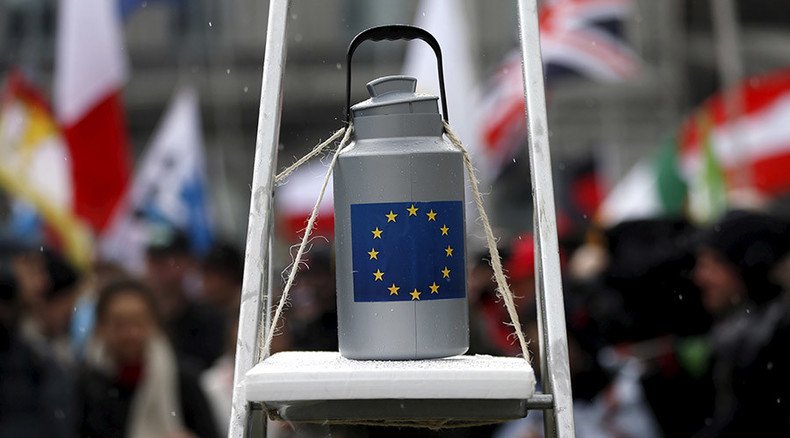EU can’t ‘bully’ nations into extending sanctions on Russia forever – Mattias Westman to RT

EU sanctions against Russia are unlikely to continue far into the future, as it will become increasingly harder to “bully” nations that want to lift the measures, founding partner at Prosperity Capital Management Mattias Westman told RT.
In June, the European Union extended sanctions against Russia until January 2016. However, this required a unanimous decision from all member countries – something that will become harder and harder to achieve, according to Westman.
“Already in the summer, when [the sanctions] were prolonged...there were a lot of countries who did not want to do it...I think each time it will become harder and harder to bully the countries who want to lift the sanctions,” said Westman, a founding partner and director at Prosperity Capital Management Ltd.
“They [EU leaders] probably might not want to spend so much political capital on bullying their countries into agreeing on prolongation very much longer.”
He stressed that Moscow’s counter-sanctions are “biting a bit” in the south of Europe, which increases the likelihood of sanctions against Russia being lifted.
However, Westman stated that this would be “politically inconvenient” for Washington, which does not want to appear weak against Moscow.
READ MORE: ‘West’s aggressive stance pushes Russia to China, threatens Western dominance’
The economist also largely disagreed with comments made by US President Barack Obama, which claimed that the sanctions have “seriously weakened” the Russian economy.
Though he admitted the sanctions have had some negative impact on Russia, he said that the country’s economic slowdown had more to do with the price of oil which has fallen by 50 percent, concluding that this was “inevitably going to have an effect on the Russian economy, particularly on the ruble.”
“I think the Central Bank did the right thing in terms of allowing the ruble to fluctuate and to decline with the terms of trade in order to preserve the margins and the competitiveness of the Russian industry,” he stressed.
It’s been one year since the West imposed sanctions on Russia over the Ukraine crisis, prompting Moscow to respond with counter-sanctions. Those sanctions have resulted in major economic losses for the EU, which are continuing to worsen.
In July the former French minister for apprenticeship and professional formation, Nadine Morano, said that the EU has lost €21 billion in revenue as a result of Russia’s counter-sanctions so far – and that number could nearly quadruple to €81 billion over time.
365 days without camembert: Russian food embargo enters 2nd year http://t.co/xEloalJMn1pic.twitter.com/SbwZgnTnFe
— RT (@RT_com) August 7, 2015Meanwhile, the Austrian Institute of Economic Research presented a projection of possible economic losses for the EU in 2015 in a worst-case scenario. It shows that Germany will be affected by the embargo the most, with losses of €29.9 billion. The next in line are Italy (€16.3 billion), France (€11.1 billion), the UK (€9.0 billion), and Spain (€8.5 billion).
“It’s unfortunate that the West has taken has taken such a strong side for one part of an internal conflict in Ukraine. I think there is lack of understanding what the causes of this conflict are,” Westman said adding, however, that he has seen some signs that “some more awareness is coming on, that this is not a simple as it might have looked from the beginning.”












